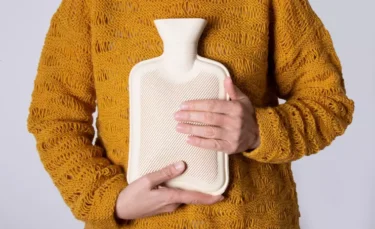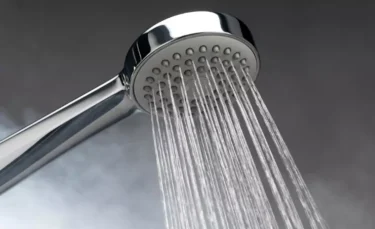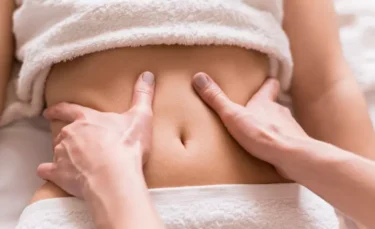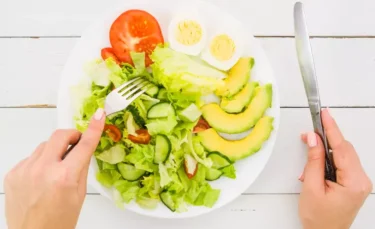Effective Home Remedies for Period Pain
By Dr. Charmi Shah +2 more

Get,

to manage your symptom
Get your,


4 Cr+ families
benefitted

OTP sent to 9988776655



You’ve successfully subscribed to receive
doctor-approved tips on
Whatsapp

Get ready to feel your best.

Hi There,
Download the PharmEasy App now!!


Register to Avail the Offer
Send OTPBy continuing, you agree with our Privacy Policy and Terms and Conditions

Hi There,
Sign up on PharmEasy now!!
Trusted by 4 crore+ families

OTP sent to 9988776655



You have unlocked 25% off on medicines




Code: NU25
By Dr. Charmi Shah +2 more
Table of Contents
Period pains, also called dysmenorrhoea, are common in many women, especially in adolescents and young adult women. While most cases are mild and self-limiting, severe or sudden onset period pain may indicate an underlying gynaecological condition and should be evaluated by a gynaecologist.
Period pains affect the majority of women at some point in their lives1. The pain is typically felt as muscle cramps in the stomach that can spread up to the thighs and back2. This pain can feel like intense spasms at times or like a dull but constant ache.

The pain can also differ from one period to the other. Some periods can cause little or no pain, while others cause intense pain. Period pains are caused due to uterine contractions2.
Secondary dysmenorrhea occurs when you have painful periods as a result of a disorder or underlying inflammatory disease in your female reproductive organs, while primary dysmenorrhea refers to common menstrual cramps that reoccur and are not caused by other diseases2.
Primary dysmenorrhea (recurrent period pain) is more common than secondary dysmenorrhea and does not usually occur due to any other diseases2. Contraction of the uterine muscles and release of a chemical called prostaglandin from the body is what results in pain during periods1.
Secondary dysmenorrhea is a condition more common in older women aged 30 to 45 years. This can be the result of an underlying medical condition, some of which are listed below:
Most women experience some pain during their periods. The pain is felt as muscle spasms in the stomach, which can spread to the thighs and the back. For some women, period pains can be severe and are accompanied by other symptoms such as nausea, diarrhoea, vomiting, dizziness, and headache2.
These home remedies are simple and can help you ease the menstruation (period) pain.

You can place a heating pad or a warm water bottle (wrapped in a towel) on your abdomen to relieve period pains3. Heat can help in the relaxation of abdominal muscles and reduce muscle tension. Heat can also improve blood circulation and reduce congestion and swelling. This helps in relieving pain caused by muscle spasms and nerve compression during periods4.

Exercising may seem difficult during painful periods, but it can help relieve pain. Exercise helps in pain relief by increasing the production of chemicals that block pain. You can try mild exercises such as include yoga or pilates (to improve physical strength), swimming, walking, or cycling to help reduce period pains5.

You can try taking a warm shower or bath. Heat is known to help reduce pain and soothe the muscles. The heat from a warm bath or shower can help relax and reduce period pains. The warmth from a bath or shower can also improve pelvic blood flow, which may reduce fluid retention, minimise swelling, and consequently ease pain. This simple method can be a soothing, natural way to manage period-related discomfort6.

Light, circular massages around your abdomen may help reduce period pains. It is a simple and effective self-help measure7.

Apart from these home remedies, you can also try making some lifestyle changes to help alleviate period pain and the associated symptoms. These include:
Before making any of these lifestyle changes, consult with a doctor as making significant lifestyle changes without proper consultation might harm your health.
If you encounter longer than usual and irregular and severely painful menstrual cycles, you should consult your gynaecologist as it may be a cause of underlying endometriosis, which is a commonly reported and clinically diagnosed condition in females around the middle ages.
Dr. Ashish Bajaj, M.B.B.S., M.D. in Clinical Pharmacology and Toxicology
Also Read: How to Increase Female Libido Safely and Effectively
For many women, some pain during their period can be expected. However, you should see your doctor if:
Systematic reviews and randomised clinical trials of herbal and dietary supplements have shown that thiamine, pyridoxine, magnesium, and fish oil may be effective in relieving dysmenorrhoea. Heat therapy has been a traditional home remedy for dysmenorrhoea.
Dr. M.G. Kartheeka, MBBS, MD(Pediatrics)
Also Read: How To Know If You’re Pregnant?
Mild menstrual cramps are common, especially in teenagers and women in their 20s. However, if the pain is sudden, worsening, or not responding to over-the-counter pain relief or lifestyle changes, a gynaecologist’s evaluation is essential to rule out underlying causes like endometriosis or fibroids. While heat, exercise, and certain dietary changes can help manage pain, treatment may also involve medications, hormonal therapy, or surgical options depending on the diagnosis.
Also Read: Natural Home Remedies for Malaria
Period pains are common but manageable. Some home remedies that may be helpful include heating pads, taking warm showers, and exercising. You can also try relaxing and yoga techniques to help with the pain.
Yes, period pains are common. Some women may feel mild to moderate pain, while others have severe pain. Make sure to consult with a doctor in case you have severe pain.
Yes, warm showers might help in easing period pain. The heat from warm showers or baths can help to relax the muscles of the abdomen and reduce the pain of periods. Heat can provide many helpful benefits like increasing pelvic blood flow, reducing fluid retention, and swelling, which may reduce period pain.
Yes, period pain can worsen over time. If you feel your period pain worsening, you should contact your doctor for assistance.
Period pain, to some extent, is expected. However, if you have a fever, sudden worsening of pain, and pain even when you are not on your period, and if the pain medication and self-help techniques don’t provide any improvement, you should contact your doctor.
Period pains or primary dysmenorrhea may not be preventable, but its severity can be reduced through regular exercise, stress management, and, if needed, medical treatment. Secondary dysmenorrhea may improve once the underlying condition is treated.
Yes, you can use heating pads for period pain relief. Make sure you wrap the heating pad or warm water bottle in a towel before keeping it on your skin. The application of heat can reduce muscle tension and relax abdominal muscles. Avoid sleeping with heating pads on and never apply directly to bare skin.
Disclaimer: The information provided here is for educational/awareness purposes only and is not intended to be a substitute for medical treatment by a healthcare professional and should not be relied upon to diagnose or treat any medical condition. The reader should consult a registered medical practitioner to determine the appropriateness of the information and before consuming any medication. PharmEasy does not provide any guarantee or warranty (express or implied) regarding the accuracy, adequacy, completeness, legality, reliability or usefulness of the information; and disclaims any liability arising thereof.
Comments

Leave your comment...
You may also like
Comments